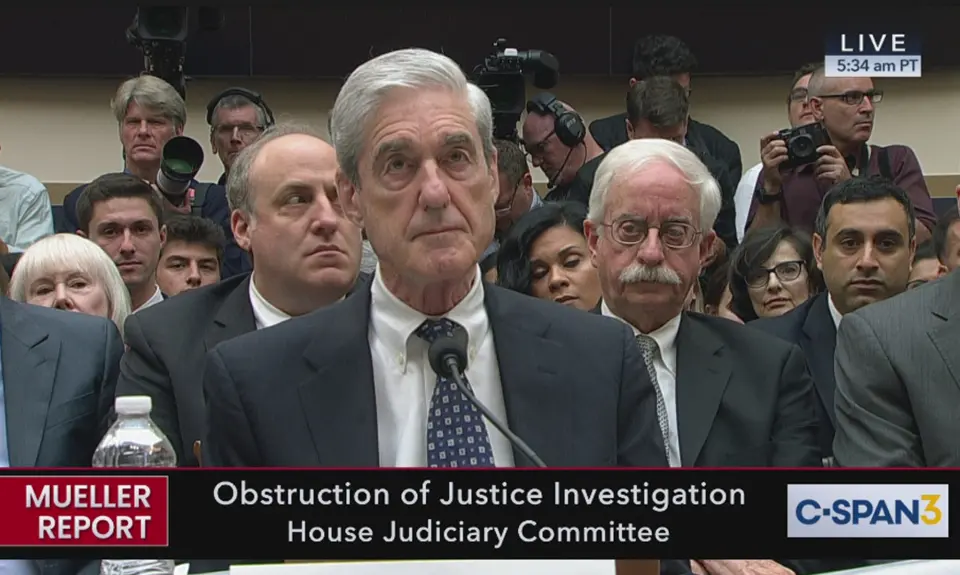The July 24 House Judiciary Committee hearing with former Special Counsel Robert Mueller was riveting. As former Chief Oversight Counsel to the Committee, I was particularly impressed with Democratic members’ effective and coordinated questioning, which brought to life the serious evidence of Trump’s obstruction of justice that Mueller’s report documents. Mueller was careful, reserved, and scrupulously non-partisan, but he made several key statements underlining the wrongdoing by Trump and his associates.
Mueller began by reiterating to Chairman Nadler that the report does not exonerate Trump from responsibility for obstruction of justice, contrary to what Trump and others have claimed. As Committee Democrats carefully went through five instances of obstruction of justice detailed in the report: Trump’s direction to White House Counsel Don McGahn to fire Mueller; to lie about it; his efforts, through former campaign manager, Corey Lewandowski, to limit the scope of the investigation to future elections; and his witness tampering by trying to influence Michael Cohen and Paul Manafort’s testimonies, Mueller made clear that while many of those efforts did not succeed, they still can constitute the crime of obstruction of justice, and that there was substantial evidence on all elements of the crime of obstruction of justice in these instances.
https://twitter.com/peoplefor/status/1154012274333540354
Several other statements by Mueller are worth highlighting. He explained to Rep. Ken Buck, R- Colo., that under the DOJ’s Office of Legal Counsel (OLC) memo, Trump could be indicted for obstruction of justice after he leaves office. And he specifically agreed with Rep. Val Demings, D-Fla., that “lies by Trump officials impeded” the investigation.
https://twitter.com/peoplefor/status/1154049493232312322
As predicted, Republican members tried to divert, distort, and distract. They repeatedly asked Mueller questions about the origins of the investigation, which took place before he became special counsel and was a topic that fell within the areas that DOJ itself urged Mueller not to testify about. Although Republican efforts will be well received by the right-wing echo chamber, they were not effective.
Throughout, several members asked Mueller about Russian interference in the 2016 election and the sharing of information with the Trump campaign, which I will cover in more detail following the House Intelligence Committee hearings this afternoon. Toward the end of the hearing, Rep. Veronica Escobar, D- Texas, asked Mueller about the suggestions in the report that although a sitting president cannot be indicted, there are “constitutional processes” that Congress can use to hold a president accountable. Although he carefully avoided using the word, Mueller clearly indicated that impeachment is one of those processes.
https://twitter.com/peoplefor/status/1154061229629087745
There is much more left for Congress to do. In addition to the Intel hearing, the Judiciary Committee clearly wants to hear directly from some of the witnesses Mueller mentioned, including McGahn (who so far has refused to testify at the direction of the White House) and Lewandowski. But Democratic members repeated that no one is above the law, that anyone else would clearly have benefited for what Trump did, and that they will continue to work to hold Trump accountable.
